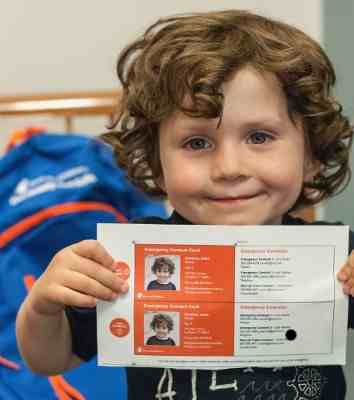18 U.S. States Lack Basic Protections for Children

Iowa is now the only state in the U.S. that fails to require four minimum emergency planning standards at schools and child care centers, placing it last among 18 states missing basic protections for children, according to Save the Children’s 2015 National Disaster Report Card.
“If we were passing out report cards to states for their efforts to protect children at school and in day care, Iowa would get the worst grade,” said Rich Bland, who heads advocacy and public policy for Save the Children’s U.S. programs. “The state has fallen behind every other state in making sure all schools and child care centers have basic emergency plans in place.”
“In total, 18 states and D.C. can still do much more to protect children,” he added.
Each year, since 2008, Save the Children has assessed all 50 states and the District of Columbia on the emergency plans they require on four basic emergency preparedness standards for the 69 million children who attend school or child care centers nationwide.
In 2008, only four states met all four standards. That total has risen sharply in recent years to 32 states, with three new states – Kansas, Oregon, and South Carolina – being added this year.
Three of the standards focus on child care and require facilities to develop detailed, written emergency plans that cover evacuation, family-child reunification and assisting children with special needs. The fourth standard requires all K-12 schools to develop a written, multi-hazard disaster plan.
Today, according to the report, only the District of Columbia and three states – Iowa, Missouri, North Dakota – still fail to require the minimum emergency planning standard for schools.
Eight states – Arizona, Georgia, Idaho, Iowa, Maine, Michigan, Montana and South Dakota – have failed to require any of the three child care standards, according to Save the Children’s report card, while 33 states and the District of Columbia meet all three preparedness child care standards.
Additional states that currently fail to meet one or more child care standards are Delaware, Florida, Indiana, Minnesota, Nevada, North Dakota, Ohio, Pennsylvania and Virginia.
However, according to Save the Children, states that have resisted the child care emergency planning standards will soon have a price to pay if they don’t change course.
Congress passed legislation last fall that will require states to meet the standards in order to fully qualify for Child Care Development Block Grant funding.
Save the Children has launched a “Stay Connected” campaign urging parents to create emergency contact cards for each of their children.
This coming August will mark 10 years since Hurricane Katrina led to 5,000 missing children reports, with many children separated from their parents for days, weeks or even months.
Photo courtesy: Susan Warner / Save the Children





![Children demonstrating in the streets of New Delhi so that the Indian government should protect them from dust pollution, noise pollution, and air pollution of extended FAR construction activity in occupied housing societies. Photo and Campaign by Rakesh Raman [ Click the photo to know the details. ]](https://www.ramanmedianetwork.com/wp-content/uploads/2017/04/dwkpol1-390x205.jpg)
